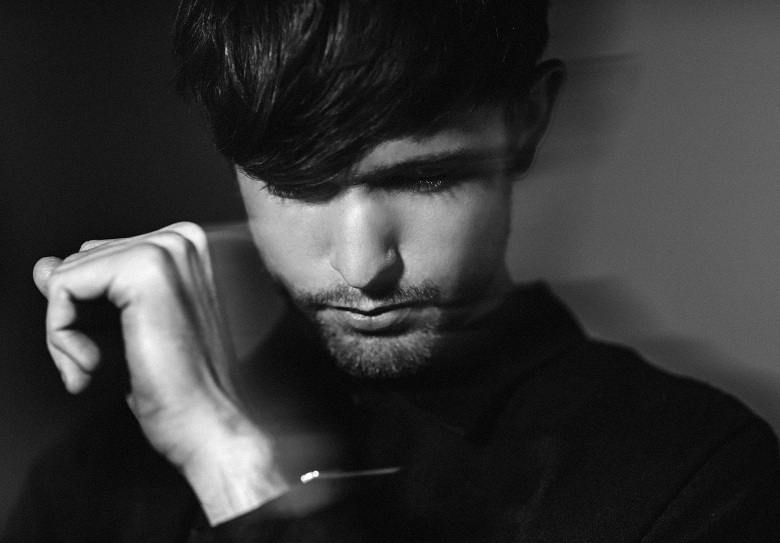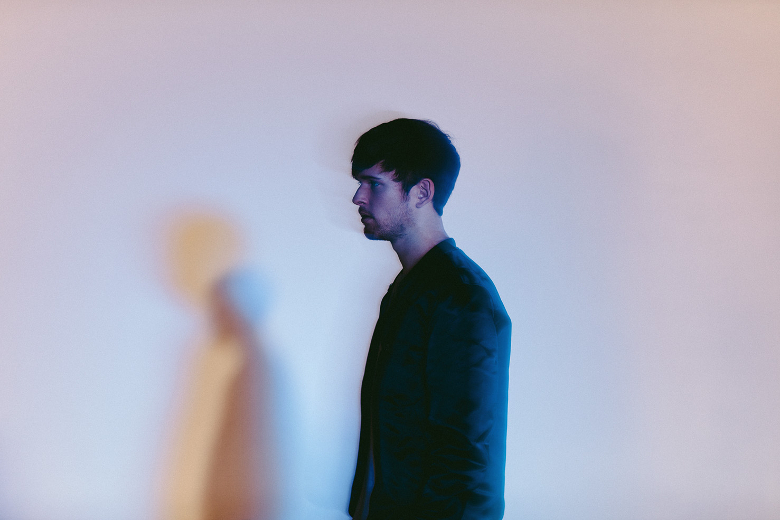Photos: Press/Universal Music (James Blake)
A translated version of this interview has been published in Groove 161 (Juli/August 2016), out today.
When James Blake released his first EP on Untold’s Hemlock in 2009, he was only 20 years old. With his new, third album The Colour In Anything, the British producer presents himself as an artist who has matured both musically and personally. Groove’s Gianina Selejan met James Blake for an exclusive interview about depression, progress and working with Beyoncé.
I have read that after you finished writing Overgrown, you felt exhausted and then you went on tour with that album. When did you start working on The Colour In Anything?
Immediately after I got off tour (laughs). I don’t think I had a moment away from obligations for a long while now. But that’s okay because music is my existence, really.
In terms of starting the record, I didn’t choose to. I just started writing and I wanted to write. But actually, maybe I should have waited to get some more time. But the thing is, if you are obliged to write a record it feels pointless to put that off, you should just write. On the other hand it would be good for your head space to get a proper break from music because it’s regenerative. So, maybe I should have waited.
Is there any difference between writing when you want to and writing when you have to?
No. Not really, because you have to when you want to. If anything I am not sure if “wanting to” has ever come into it. I feel like I have to write, most of the time. Not because somebody else expects me to, but because it is like a compulsion.
I guess most artists feel that way.
Exactly, for instance writers. I would never encourage someone to write unless they feel like they had to, like their life or their happiness depended on it.
Video: James Blake – Radio Silence
Can you describe your writing process? How do you start?
I start mostly at the piano, but to be honest, my process has changed. I don’t really know now. Most of the good ideas happen at the piano though.
The Colour In Anything is longer than your first and second album combined. Was it a conscious decision to make a double album?
I didn’t want to let go of the music, so I just put it out. I was too happy with some of the music to leave it and maybe release it later. I just wanted to put it all out at once. Psychologically, it was good for me to leave that music behind and move on.
How did you select the tracks for the album?
I’m on a major label and I am probably never going to be the kind of artist that can write hits on demand. If someone feels like there aren’t enough tracks on the record that will sell the record, I am not the person that can easily just come up with that. I did feel pressure from various places to get those songs that would sell the record. So I had to make the decision that I was happy with it and that I felt that the music was just good enough quality. But I think that if I had carried on waiting for that song, I might not have finished the album at all. I made the music I wanted to make and not what other people expected from me.
Stream: James Blake – The Sound Of Silence
Seeing the title of the album, I thought of two things: A lot of people say that when they fall in love they see the colours brighter. On the other hand, people who are depressed tend to see everything “greyer”.
That is what this deals with, I think. The Song “The Colour In Anything” is about trying to communicate with somebody who is depressed. Somebody I know is struggling with depression and I found it very hard to communicate with him. I found it very difficult to interpret what he was saying to me. It was hard to find the real meaning behind what he was saying because it felt like he wasn’t in the right headspace to communicate with me honestly and normally. I think honestly I didn’t have that either, so it made it difficult for us to have honest exchanges with each other. I believe the Simon & Garfunkel song “The Sound of Silence” is about a similar thing, about lack of communication. Especially between men, lack of communication is a real problem. Actually depression in men is an underlying and destructive thing that leads to the breakdown of the communication.
The persisting stigma around mental illness generally, doesn’t necessarily encourage anyone to open up, does it?
I think in Europe and in Germany specifically there is a slightly more progressive attitude, although in England we are very backwards about mental health and about opening in up and saying that you struggle mentally. People are very reluctant to talk about it, especially the older generation and unfortunately that generation is in power. As a nation, we have a wrong attitude about mental health.
„I had to learn how to be self-serving. Not selfish, but just look out for myself.“
You mentioned that you were also struggling and that it took you a year to find a way out of it. Did you go to therapy or was it something that you dealt with yourself?
I did a number of things. Mostly I met somebody who encouraged me to stand up for myself and to make sure that I did things that made me happy and don’t do things that make me unhappy. I also learned to communicate properly with people when I was not happy with them or apologize to people I felt I wronged, things like that.
So the key to reaching a good state of mind lies in proper communication?
It’s all about communication and it’s all about honoring yourself and knowing what it is you actually want and not just agreeing to things when you don’t want to do them, “no” being a powerful word. A lot of situations that you don’t deal with, if enough of them are happening at once, they can really break you down. I had to learn how to be self-serving. Not selfish, but just look out for myself.
If you have the feeling that you are always running behind and just try to keep up all the time, try to make other people happy, you are actually hurting yourself and also those relationships.
Yes, it can lead to resentments. You get a feeling in your chest and that feeling is your instinct telling you “you shouldn’t be doing this” or “I should have said no” and when you do it anyway, you push that feeling down, it is eventually a recipe for disaster. Ultimately, you can choose how to feel about things and if you carry on doing something that isn’t good for you, given you have free will to do so, then it’s your fault. So I had to take some responsibility. A lot of it was taking responsibility about the way I feel and for enabling myself to be very happy. Over the course of the past couple of years I got to such a good place by practicing being self-serving and trying to do exactly what it is I want to do.
That’s a good message!
Yeah, that can really help you in whatever you are doing. Also in realizing that the repercussions are never that bad when you say no. You will always get what you want. I am sure there are situations where it might be difficult to get what you want but where you can, try…

You have obviously evolved a lot personally in the past couple of years. How do you feel like you have evolved musically from your first album to now?
I think I developed a more personal lyrical style. It is less shrouded. I don’t feel like I’m covering up anymore. I also feel clearer about what I want to say. It was a lot of fear of saying something too honest in my early work. When artists get older and they see the reaction to honesty sometimes it can make them withdrawn and I wanted to do the opposite, I wanted to become more honest in order to ignore that fear.
Do you fear like at the same time you are making yourself more vulnerable?
Yes, but then again it is honoring yourself because you are doing what you want. You say what you want to say rather than making it a taboo.
Everyone is excited about you working with Frank Ocean. How did that come about?
I met him on the “Life Round Here” video shoot. It was really nice and we sat and hat a pint and talked for a long time. And we just became friends from there.
How did you meet Justin Vernon?
I met him at the SXSW Festival a long time ago and we’ve been friends for years now. He’s such a wonderful person. They both are, Frank and Justin. He was a mutual fan, which I was so surprised because I would listen to his record For Emma, Forever Ago hundreds of times. We just became friends, we didn’t really work together for a long time.
Video: James Blake Feat. Chance The Rapper – Life Round Here
What is “We Need A Forest Fire” about?
I think it is about regeneration. It is also about finding yourself very isolated in the city and wishing that you could clear the slate and start all over again. The city can be a frustrating place. I felt that about London at the time.
Do you still live in London?
Not really, I kind of go between London and Los Angeles.
What do you like about Los Angeles?
The sun! I like eating nice food and being in the sun. Also my girlfriend lives there. I’ve done a lot of touring, I’ve done a lot of writing and been draining out my emotions, stressing myself out by deadlines and trying to get the record ready. As much as I thoroughly have enjoyed my career, there have been times when I thought: “Maybe I should enjoy myself a little bit more”, just in my free time, not thinking about what I should be doing. LA gives me a nice base to relax and just be a fucking person.
„I feel now that the more stressed I’ve been, the worse my songs have been.“
So you are now living the California lifestyle?
I don’t think I share any particular characteristics with the people from Hollywood. Or maybe I do. I don’t know. What is nice about LA is that a lot of the people there are trying to be happier. They are actually taking steps to do things that make them happier, whatever those steps might be: diet, therapy, exercise, lifestyle or whatever. LA can seem like a superficial place but ultimately I see the value now in doing things that will make you a happier person and I don’t think I did a while ago. I saw that as a distraction from just getting on with life and getting on with stuff. Now I consider it more important to be happy more than anything else.
How do you thing this new state of mind will affect your work?
You know the funny thing is, I will probably end up doing better work by having that head space. I feel now that the more stressed I’ve been, the worse my songs have been. For this record, a lot of the music that I made when I wasn’t feeling good, didn’t make it to the record. It didn’t work.
A lot of artists have the feeling they cannot be creative without pain and suffering.
That is a real phenomenon. I think that anxiety can really hold you back. I think fear stops you in the inception of ideas. Fear can be a voice in your head that says “you can’t do that, you can’t put that synth sound in there or you can’t make that beat because it sounds like this…” Without fear, we are much stronger and I think that a lot of people try to avoid thinking about the fact that they are actually kind of scared about what people think when they make music. I am definitely a victim of that. I have definitely been scared about what people might think when I do a certain thing. It happens all the time. I think in all ways anxiety holds you back. I have never experienced a moment when anxiety has improved my music. It’s always made it worse. Fearlessness has always been a strength and when I have been able to access that fearlessness, that’s when I have made my best music.

Did the collaborations on this album help you overcome certain fears and insecurities?
Yes, most definitely. I find myself switching on in a way that’s very social and un-self-conscious and that is the best thing for me. I actually find socializing in general – which is something that I have not done enough in my life – with people that stimulate me and people that make me want to better myself, that is incredibly exciting to me. So collaborating is good for that.
I am now thinking about Beyoncé.
That is a good example or someone I just mentioned. I grew up listening to Timberland and his productions and one of them was Destiny’s Child, so I’ve loved her since I was a kid. She’s always been in my life musically. Very strange moment to listen to her voice harmonizing with mine! It really gave me shivers when I heard it for the first time. I was in the studio, she did the harmony later on. And then we got sent the track. And I remember turning it on in my studio and listening and getting this shiver down my spine, just that voice with my voice. I wasn’t ready for it. It was great.
What is your future going to look like from now on? Just keep getting happier?
Just have fun and enjoy my success. I’ve worked really hard, but I think now it’s time to enjoy the freedom that comes with that. I consider myself very lucky and I think the worst thing you can do is forget that you have been able to buy yourself this kind of freedom and just carry on in a cycle. Then you wake up at 40 years old and you haven’t enjoyed your 20s and 30s because you’ve just been obsessing over small details in music.
James Blake’s The Colour In Anything has been released through Universal.
